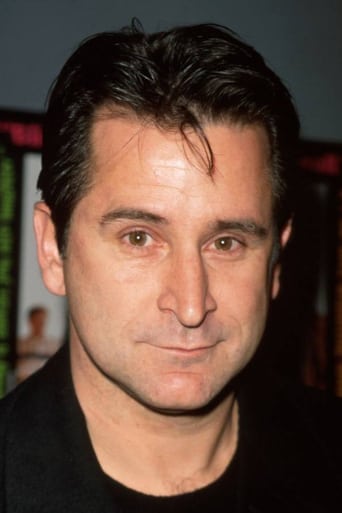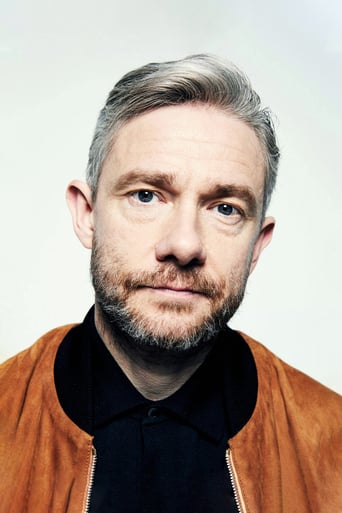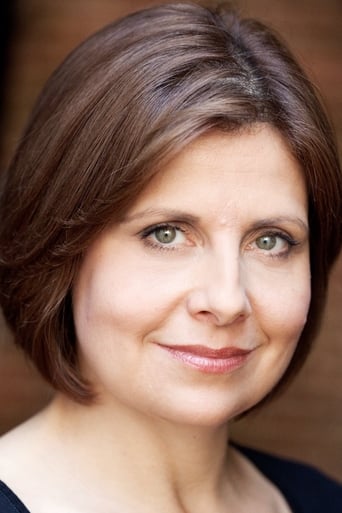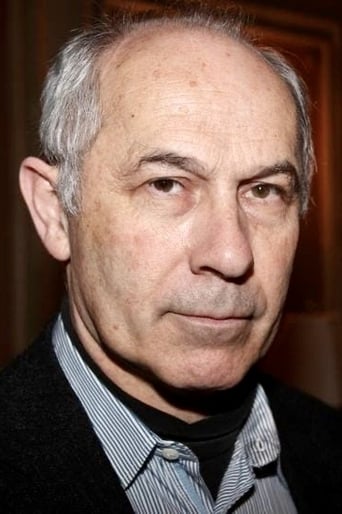Clevercell
Very disappointing...
Stevecorp
Don't listen to the negative reviews
ChanFamous
I wanted to like it more than I actually did... But much of the humor totally escaped me and I walked out only mildly impressed.
Salubfoto
It's an amazing and heartbreaking story.
l_rawjalaurence
What to make of THE EICHMANN SHOW? It is necessary to detach fiction from fact. Paul Andrew Williams's production includes large slices of archive footage of the trial, showing the impassive features of Adolf Eichmann as he listened to the testimonies of several witnesses (victims?) of the atrocities he condoned. There are also newsreel records of the concentration camps and their victims, who if they were not already piled up into heaps of dead naked bodies, were left emaciated, mere shadows of what was once live humanity. These sequences are difficult to stomach, even at seventy years' remove; we still wonder how people could behave in such a bestial manner.The dramatized parts are less effective, to be honest. The action is structured around a conflict between television producer Milton Fruchtman (Martin Freeman) and his director Leo Hurwitz (Anthony LaPaglia). Fruchtman has rescued Hurwitz from a ten-year exile on the Un-American Activities Committee blacklist, but finds him difficult to work with, as Hurwitz seems obsessed with focusing his cameras on Eichmann's face, to the detriment of other events during the lengthy trial. At one point Hurwitz misses a dramatic moment when one witness faints as he tries to recall his harrowing experiences in the death camps. Yet sometimes the conflict between producer and director distracts our attention away from the events at hand, almost as if director Williams were trying in some way to soften the dramatic impact of his piece. Matters are not helped by the regular use of reaction shots on Freeman's and LaPaglia's faces as they respond to one another.On the other hand Williams does question Fruchtman's morality, as he seems more obsessed with maintaining global ratings rather than broadcasting the material. We are into areas explored in Sidney Lumet's NETWORK (1976) here: are television companies really undertaking public service responsibilities, or are they simply trying to render all events as entertainment to attract high viewing figures? Hurwitz understands the significance of what he directs, but Fruchtman appears not to.THE EICHMANN SHOW is certainly a powerful piece that needs to be watched, but perhaps the reconstructed material could have been more slickly handled.
Reno Rangan
This BBC film was based on the actual event that took place in the early 60s, Jerusalem. About televising the trial from a courtroom, which was the first ever documentary series to broadcast. One of a top Nazi officer, Adolf Eichmann, who fled during the end of world war two and settled down in the South America, but brought back with the help of Mossad to Israel to face the war crime charges. The movie won't demonstrate all those in the picture, but it begins with the television production house preparing to shoot the important television event in the history. So the show begins, but a boring first half and the next half is where all the interesting stuffs happen.In my prediction this movie with the powerful contents would have easily beaten the 'The Imitation Game', if it was produced grandly and commercialised a bit of narration for the worldwide market. The real video clips of the trial were merged into the movie and that gave a strong effect which allows to realise how those actual occurrences has taken place. Actually, there are some uncensored cuts, which were shocking and disturbing. So pretty much like a semi-documentary, but due to the majority of movie clips that shot with actors and in the sets, it feels like a TV movie as it should be."While he watches the footage, we'll be watching him. Only then will we see the real Eichmann."The performances were ordinary, because the screenplay preferred the main event to display, not the characters and their lifestyle. That makes it is not a biographical picture, though both the lead men were pretty impressive. We had seen many world war 2 and related to it movies, but this one was a different. Because of the story was set 15 years after the end of war. Simple movie, no twists, no developments, but reveals the facts from a different dimension. Because of this show, people around the world and filmmakers understood the cruelty of the Nazi prison camp. The movies those came afterwards about this war were inspired by the events that discussed in the courtroom. So if you are planning for this, expect it to be as what the title says, not a bit more or less.8/10
Johan Dondokambey
In the 1960s the Israeli intelligence service tracked down and captured the former number one Nazi SS officer Adolph Eichmann from his hiding in Argentina. He was responsible for the 'final solution' on the Jewish question, that is the systematic killings of Jews. In Jerusalem the Israeli government is holding a trial for Eichmann and they intend to televise the whole process. They had contracted New York based producer Milton Fruchtman to produce the TV program. Milton then hired Leo Hurwitz, a renowned documentary movie director to direct the show. Their first obstacle to face is the judges are having objections to the presence of cameras in the room, which they deem intimidating. So the production team staged the court room's walls with holes to accommodate the cameras. As the trial begins Leo immediately dances through the camera positions and zooms and pans and getting the additional dramatic effects the program needed. But Milton gets frustrated over the fact that they are losing audience over other world politics issues such as the Cuban missile crisis and Russia's Yuri Gagarin, the first man in space. The audience soon returns as the trial enters the witness testimonies, which stories touched the world deeply. Meanwhile Leo gets more and more obsessed in finding any little hint of humanity left within Eichmann, making him to focus the cameras on Eichmann frequently, to Milton's frustration. Milton barely escapes an assassination attempt and warns the team about their own personal safety. At last comes the moment in the trial where they show Eichmann the footage of the actual things happened in the concentration camps, to which Eichmann didn't flinch. Leo then gives up trying to proof his point about Eichmann as Eichmann is then sentenced to death.The story proves to be quite a hard to judge in overall. As the movie focuses most on the production team, it has distanced itself from the Eichmann character entirely that Adolf Eichmann only existed as the background for this movie. So it's safe to say that the movie is not like what we would find in 1961's Judgment in Nuremberg. In fact in this movie there's no real interaction between Eichmann and the main characters at all. Yet if we see it from the production team's perspective, the movie had done it's obligations in retelling all the things that matter about the trial's video production. But I personally feel that beside that main focus on the trial, the rest of the story felt pretty much flat. This is quite lame because the movie actually brought up a few potential sub stories, such as the ones with Milton and Leo's families, the ones about Yaakov, and the ones about Mrs. Landau.Those being said, I have to say also that the movie reached it's aim in revisiting memories about the Holocaust by the use of the archival footage, not just the footage of the concentration camps, but also the footage of the actual witnesses and of Eichmann himself in the court room in the trial process. The movie's use of reenactments at times on the Eichmann side is to a good purpose. But I think that it's quite unwise to mingle those reenactments with the actual Eichmann archival footage.The acting overall is quite a decent job in my view. Martin Freeman managed to retain his usual character of looking carefree and able to hide even threats to him in order to maintain his team's working spirit. He was also successful in projecting the wider spectrum of Milton Fruchtman's supposedly frustrated condition. Anthony LaPaglia also did well enough in portraying the cool handed and professional director. The extra mission about finding any hint of Eichmann's humanity is also depicted quite nicely by LaPaglia, even to the confrontations with Fruchtman.My say is that The Eichmann Show (2015) deserves a 6 out of 10 score. I would've scored it more if only the rest of the story didn't feel so flat. A recommendation is only for those of you who really like history. Despite being able to be emotional at times, the movie is more informational than it is entertaining.
stephengrey12
Although this is an excellent drama in every respect other than the casting of Martin Freeman who has neither the gravitas or personality in this part to be convincing. A very good actor but should confirm himself to lighter roles. This spoiled an otherwise very well scripted and directed film. The original footage was harrowing in spite of it being seen many times before it never ceases to shock and repulse, this made Martin Freeman's casting all the more baffling. How and why did the director and casting director ever come to an agreement on this, I could name at least four actors that would have been far better choices, particularly as the LaPaglia part was absolutely spot on. The Landau character was also perfect and if it had been made for the cinema and not just TV would reap many awards.




